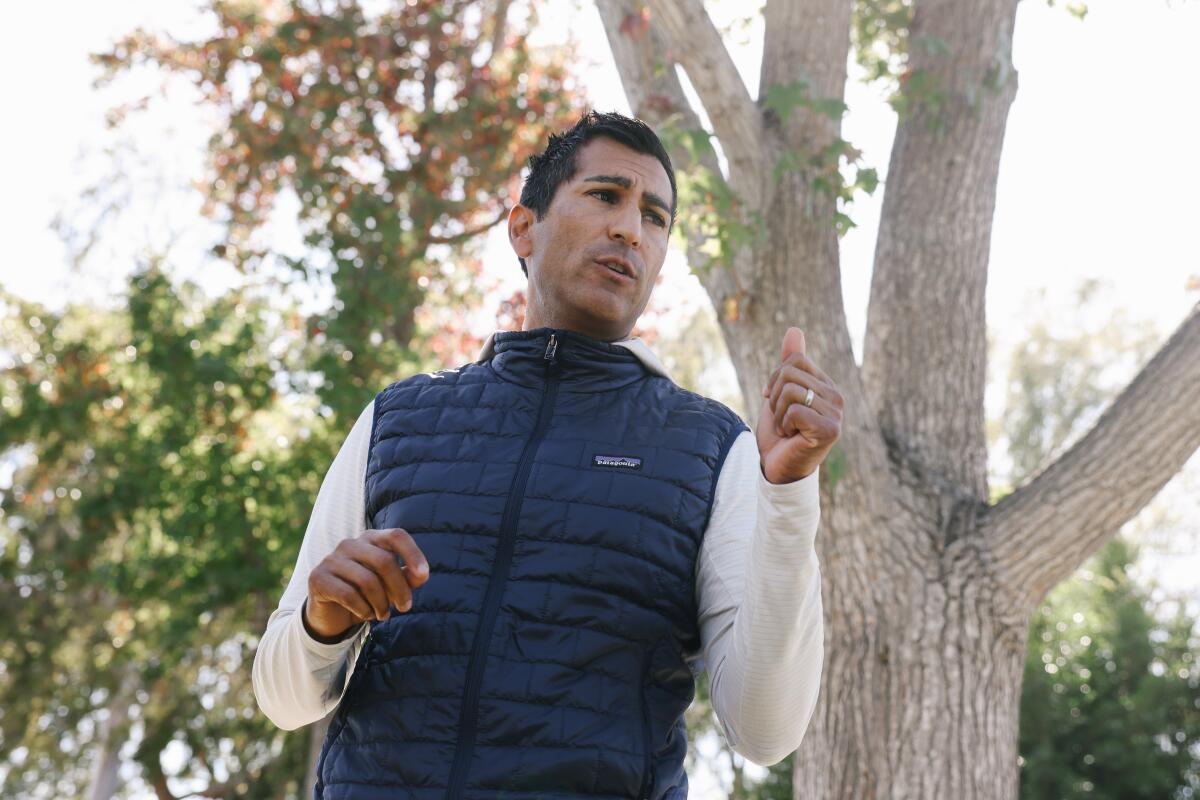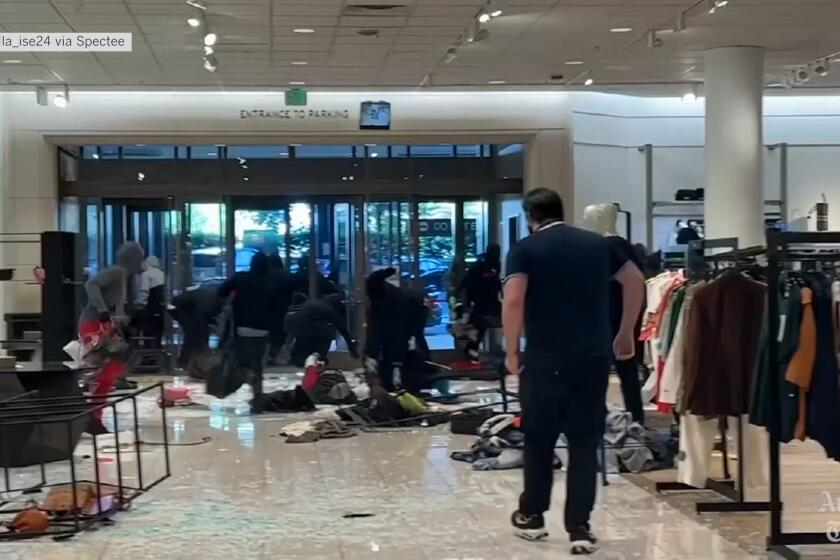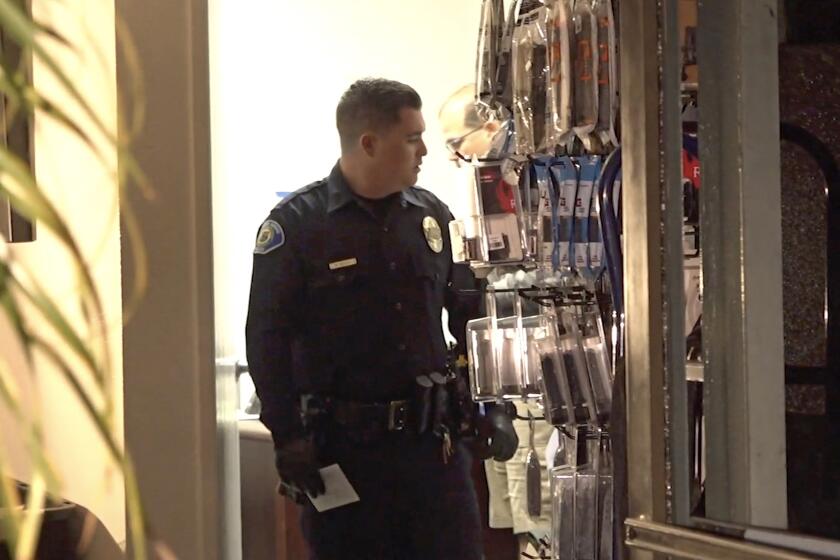Editorial: Time to defend California’s hard-won criminal justice reforms from lawmakers. Again

- Share via
California is in the midst of a retail theft lollapalooza. The Little Hoover Commission, a state watchdog agency, conducted the first of several hearings on the topic last month and will meet for a second session on Thursday. A bipartisan Assembly select committee (chaired by Democrat Rick Chavez Zbur of Los Angeles) will convene in Sacramento this month and hold a hearing in Los Angeles early next year.
All this official attention to commercial property crime is both heartening and ominous. Retail theft is a serious problem, not only for the store owners who lose merchandise and cash to shoplifters and “smash-and-grab” robbers, but for Californians who no longer feel safe on their streets and spending in stores. They have every right to expect leaders to take the issue seriously.
Crimes that discourage people from shopping and enjoying pubic places undermine the quality of life and could have serious consequences if left unchecked. So could irresponsible, fear-mongering falsehoods about the causes of those crimes.
The problem is that officials too often respond to complex challenges with the quickest, simplest, most politically palatable tools in their tool kits, whether they target the real problem or merely respond to perceptions without making actual improvements. And with retail theft, that too often means promoting — yet again — rollbacks of hard-won criminal justice reform measures.
Chief of those is Proposition 47, the landmark initiative adopted by California voters in 2014. The measure revised the state’s dividing line between misdemeanor and felony theft and made possession of illegal drugs for personal use a misdemeanor. It made no change to laws dealing with robbery, residential burglary or crimes of violence.
Three bills to roll back or repeal Proposition 47 are grounded in fear and falsehoods and should be rejected.
In deep-blue California, the most heated rhetoric leveled against smart-on-crime laws may come from the political right, but the real threat often comes from Democrats, especially those who represent regions outside Los Angeles and the Bay Area. In 2020, Jim Cooper — then an Assembly member representing a portion of Sacramento — was one of the chief proponents of Proposition 20, an initiative to roll back much of Proposition 47 based on spurious arguments. Voters rejected it handily, and in the years since, legislative leaders wisely turned away other irresponsible rollbacks.
Now leadership has changed hands. New Assembly Speaker Robert Rivas (D-Hollister) appointed Kevin McCarty — who is running for mayor of Sacramento — to replace Reggie Jones-Sawyer as the chair of the Public Safety Committee (Jones-Sawyer is running for Los Angeles City Council).
Long awaited but right on time, more than $100 million in state funding is headed toward cities and counties to treat, house and retrain Californians whose addictions or illnesses make them high risks to commit crimes and to wind up in jail or prison.
As Californians become increasingly weary of retail crime, McCarty can read the room. “Everything is on the table,” he said, including Proposition 47. “We’re lacking some accountability,” he said, for thieves who repeatedly steal items that fall beneath the $950 felony-misdemeanor threshold.
Some studies suggest an ongoing correlation between Proposition 47 and increased thefts from motor vehicles, especially unlocked cars in which owners leave personal belongings in plain view. But the same studies refute the wider range of evils routinely attributed to the reform by critics. Of course Proposition 47 is not to blame for smash-and-grab robberies. It has nothing to do with robbery.
In the statute books, California has changed sentencing policies to make them more rational and just, and to ensure that costly prison beds are used for only the most serious criminals.
Re-airing disproved but popular grievances about criminal justice reforms could, theoretically, turn up some data left out of previous examinations, however unlikely. Too often, such exercises have little to do with facts, sound policy or real public safety, and much to do with political calculation.
So as California lawmakers conduct hearings and propose legislation in 2024 — the 10th anniversary of Proposition 47, the 30th anniversary of the disastrous three-strikes law, and an urgently important election year — let’s keep a few things in mind:
Debunked tropes about California’s justice reforms supposedly causing crime keep coming up. They were false when crime was dropping, and they’re just as false now.
Reports of thefts and other symptoms of social breakdown are up around the country, including in states that lack Proposition 47-type reforms. The same is true of chain store closures. California’s dividing line between misdemeanor and felony theft, contrary to the common refrain of anti-Proposition 47 activists, is actually lower, not higher, than that in most other states.
The kind of shoplifting covered by Proposition 47 is down; robberies not covered by Proposition 47 are up. State lawmakers have passed laws giving police new tools to crack down on repeat theft offenders — even though they already had the ability to do so.
Given these facts, factors other than criminal justice reform are most likely behind increased retail thefts. Committees and commissions ought to do their best to pinpoint the true causes, no matter how complex or counterintuitive. If Proposition 47 is found to be among the causes of rising retail theft, then we should address the problem. If not, as studies have repeatedly demonstrated, let’s accept the facts — again — and move on.
More to Read
A cure for the common opinion
Get thought-provoking perspectives with our weekly newsletter.
You may occasionally receive promotional content from the Los Angeles Times.













